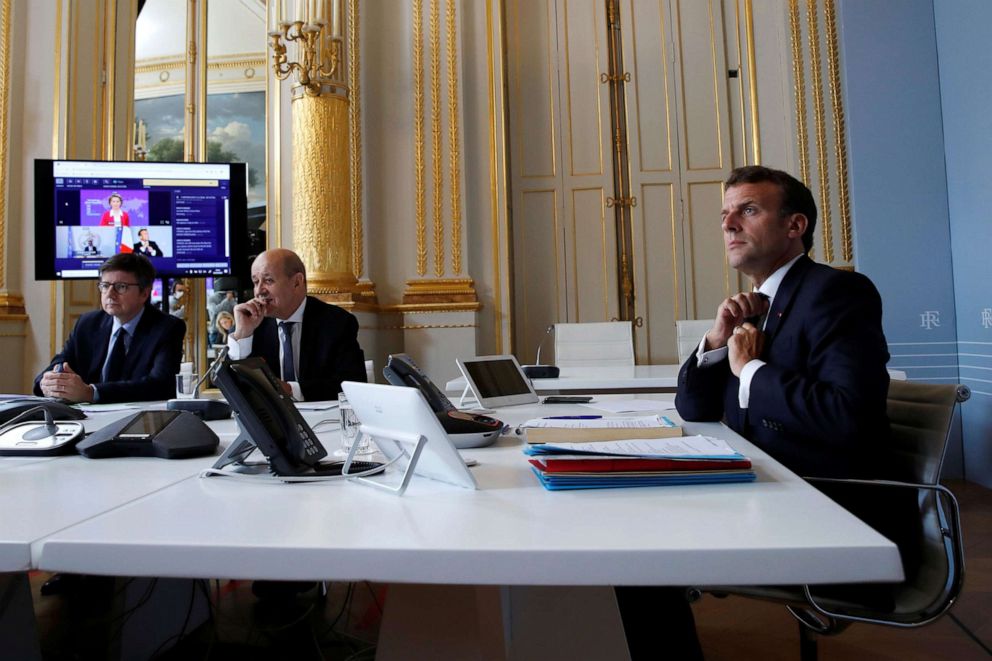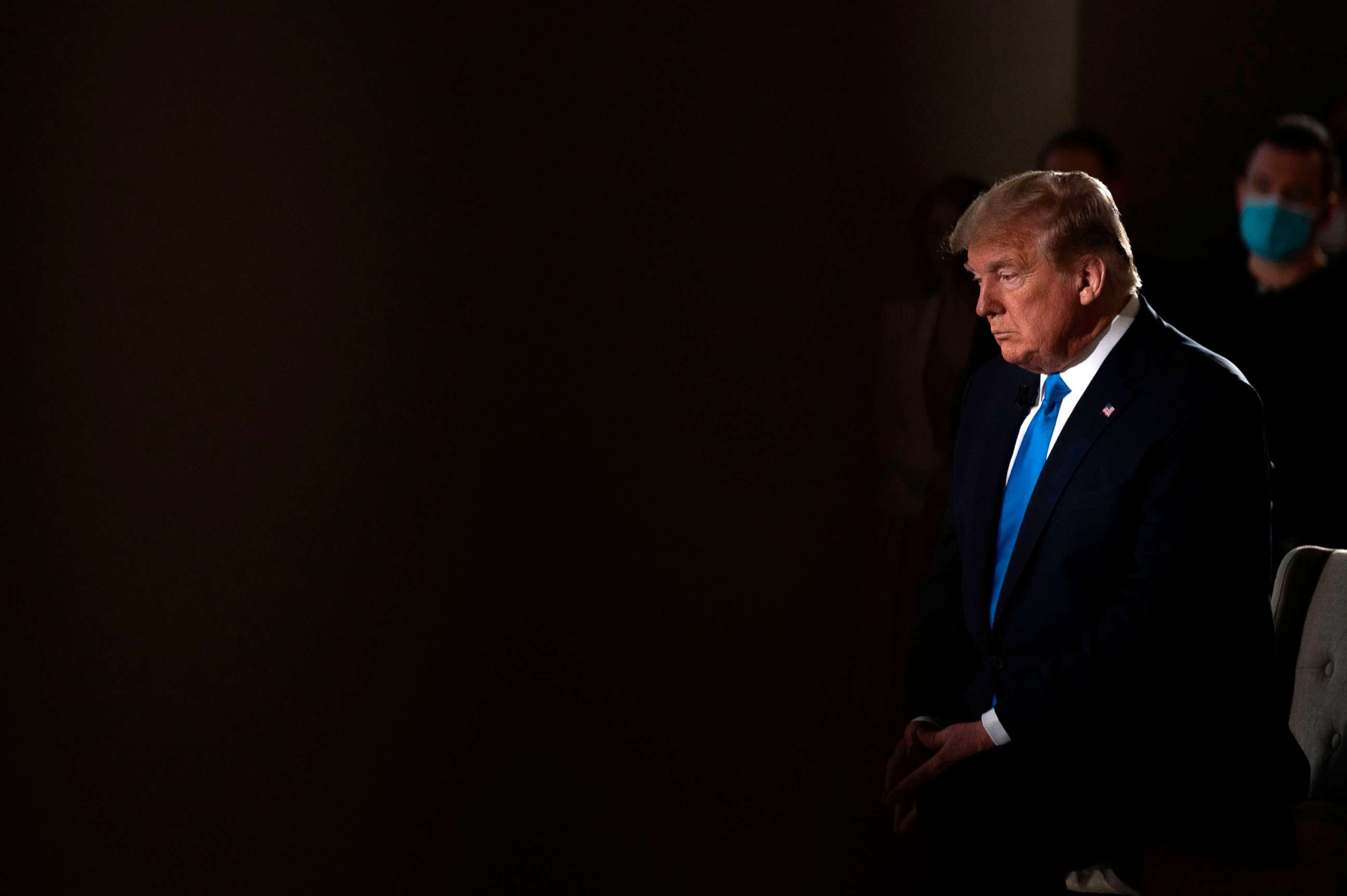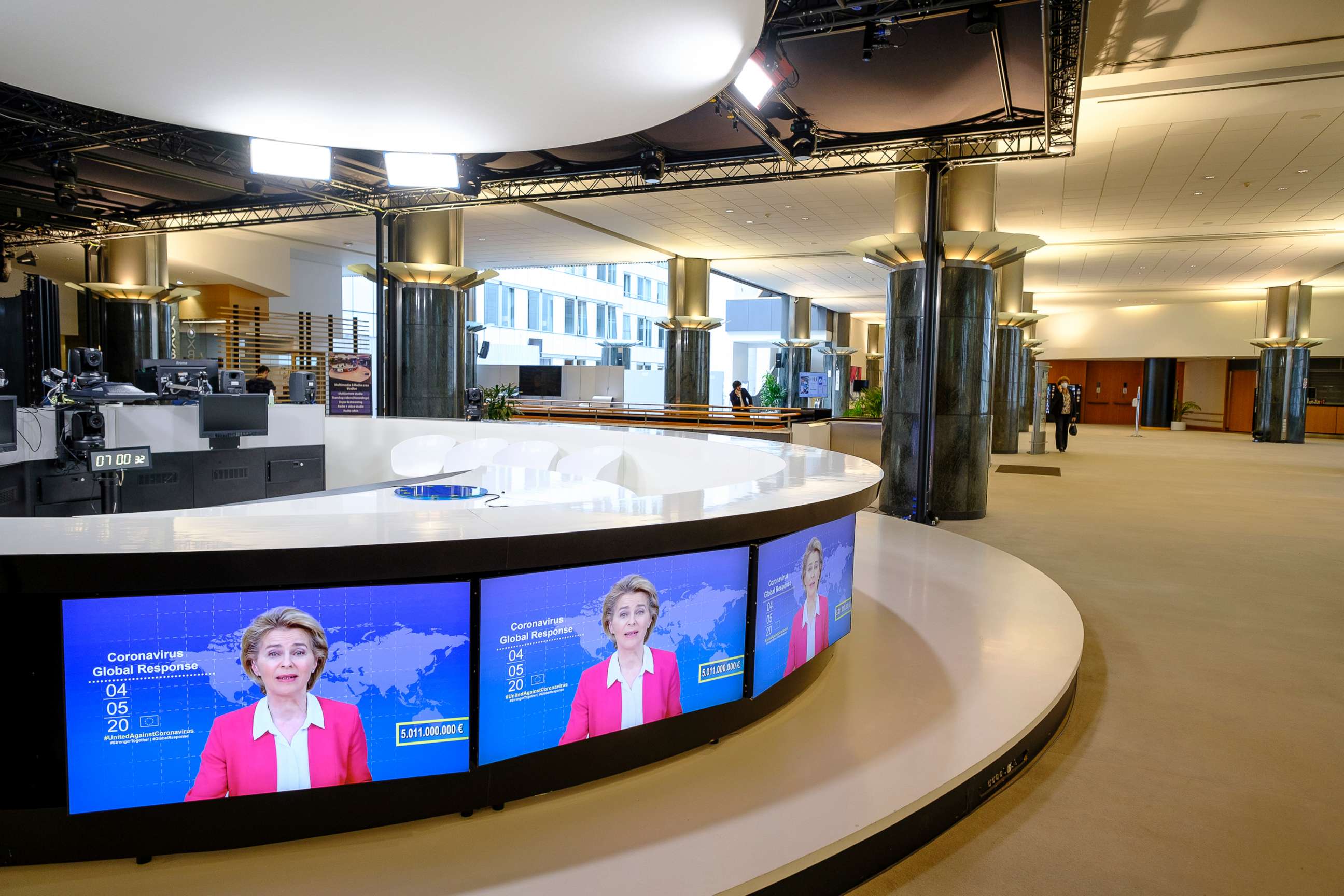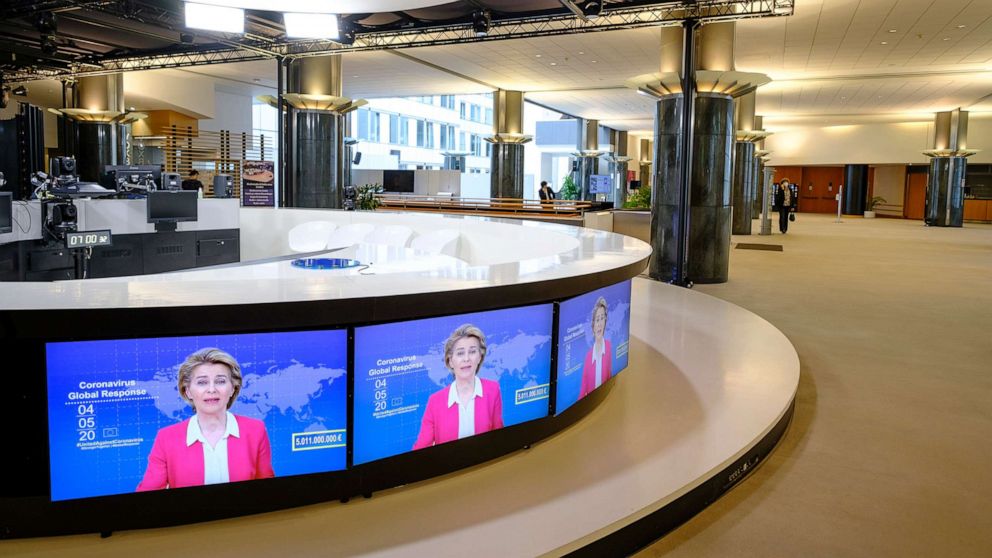US absent from global conference to raise money for coronavirus vaccine
The European Union raised over $8 billion for the development and "universal deployment" of a COVID-19 vaccine and other medical treatments during a virtual global summit Monday that the U.S. did not participate in, prompting doubt about the Trump administration's support for those efforts.
Senior administration officials said that the U.S. is supportive of the summit and that the administration has already provided $2.4 billion in total for the coronavirus response, including economic assistance, global health funding and humanitarian aid. But even under repeated questioning, the two officials who briefed reporters would not say why the U.S. skipped the summit entirely.
While the U.S. did not participate, leaders of other countries addressed the summit directly, including French President Emmanuel Macron, German Chancellor Angela Merkel, British Prime Minister Boris Johnson, Japanese Prime Minister Shinzo Abe, Israeli Prime Minister Benjamin Netanyahu, Turkish President Recep Tayyip Erdogan, Australian Prime Minister Scott Morrison, and Canadian Prime Minister Justin Trudeau.
The pledging marathon will continue until the end of May, but the conference finished Monday just shy of its overall target of €7.5 billion, or $8.2 billion. Erna Solberg, prime minister of co-host Norway, pledged $1.3 billion, the EU itself pledged $1.1 billion and Merkel and Macron announced that Germany and France will provide $572.9 million and $545.6 million, respectively.

"Today, the world showed extraordinary unity for the common good. Governments and global health organizations joined forces against coronavirus. With such commitment, we are on track for developing, producing, and deploying a vaccine for all," said European Commission President Ursula von der Leyen, the EU's top official.
Chinese Ambassador to the European Union Zhang Ming, who attended on behalf of China, did not announce any new financial commitments, but touted Chinese investment in domestic research institutions and assistance overseas -- some of which has been rejected for being defective.
"In fighting the virus, confidence and solidarity are much more valuable than gold. Panic and blame game are not useful at all. It is our conviction that together we can rise to the challenge and prevail," Zhang said, a shot at the Trump administration, which has escalated its attacks on the Chinese government in recent days.

All the funds raised will be channeled through international health agencies like the Global Alliance for Vaccines and Immunizations (GAVI), the Coalition for Epidemic Preparedness Innovations and the World Health Organization -- a new favorite target of President Donald Trump's -- after an agreement last month among those groups and others, such as the Bill and Melinda Gates Foundation and the World Bank, to commit to "equitable global access to innovative tools to fight the COVID-19 virus."
"We support this pledging effort by the EU. It's one of many pledging efforts that are going on, and the United States is at the lead really, at the forefront of those international efforts with an incredibly robust ramp-up effort that's begun here in the United States," one of the senior Trump administration official said.
The State Department touted the administration's "whole-of-America efforts" in a press release, including a government-private sector partnership to accelerate vaccines and drug candidates, but the administration has not made a specific commitment to making these treatments universally available.
With the world beginning to move past the immediate crisis of overwhelmed hospital systems, there is growing concern that just as countries were once hoarding medical supplies like personal protective equipment or ventilators, there could now be a race to the bottom competing for vaccinations or other forms of treatment that will, at least initially, be scarce.

The U.S. had to deny accusations that it seized PPE shipments from local German or French officials, days after Trump invoked the Defense Production Act to require American manufacturers like 3M from exporting N95 masks to America's neighbors and allies, including Canada and across Latin America. Critics of the Trump administration have also called on it to appoint a special envoy to coordinate a global response to the pandemic or step up American involvement in those international efforts.
Tune into ABC at 1 p.m. ET and ABC News Live at 4 p.m. ET every weekday for special coverage of the novel coronavirus with the full ABC News team, including the latest news, context and analysis.
Despite its absence at the pledging summit, the U.S. has and will continue to cooperate on research efforts, the two senior officials said, arguing that participation in international conferences like this one doesn't speak to work on the scientific front, where U.S. public and private research has helped expand global understanding of COVID-19.
"There's really a tremendous amount of international coordination that is ongoing on vaccine, therapeutic and diagnostic efforts, so we have had an extraordinary ramp-up of international coordination. That is something that is ongoing," the first official said. "We are going to work very closely with European partners and others around the world and continue to lead in that effort to achieve a robust response."
Trump announced a "halt" in U.S. funds for WHO last month as his administration reviews its assistance and searches for more "transparent" and "accountable" partners, the second senior official said Monday. It's unclear how much money that will ultimately total, but it does not include U.S. funding for the global health agency's staff salaries, offices and travel, according to the second official -- instead hitting its programs to immunize children, fight Ebola or other work.
What to know about the coronavirus:
- How it started and how to protect yourself: Coronavirus explained
- What to do if you have symptoms: Coronavirus symptoms
- Tracking the spread in the U.S. and worldwide: Coronavirus map




